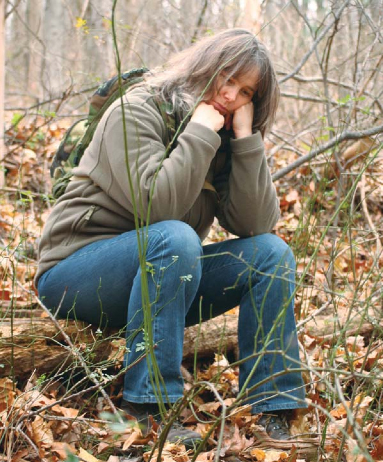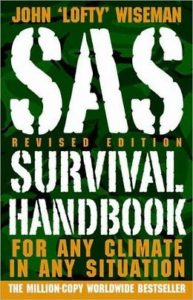

Your Worst Enemy: How to Control Fear
It's said that survival is partially a mental game. That's actually incorrect.
It's almost entirely a mental game.
Go ahead, buy all the gear you want. But if you don't know how to control fear, all the fancy knives and freeze-dried chemistry in the world won't make a bit of different. You'll be too out of yourself to use them.
John D. McCann writes on how to control fear in his book, Stay Alive! Survival Skills You Need. Here are his four methods on how to control fear.
~ Living Ready
Fear = Panic
In order to prevent panic, we must understand how to control fear. We now know some of the fears that affect people in a survival situation. But that is not enough.
Mark Twain once said, “Courage is resistance to fear, mastery of fear, not absence of fear.”
We must learn how to control fear, so panic does not have a chance to control us.
When fear strikes, we know we must act immediately. Don’t run from it, but recognize and admit it. To prevent the physical symptoms of fear from setting in, there are several things you can
do.
How to Control Fear: B-R-E-A-T-H-E
People tend to hold their breath when frightened, so breathe, breathe, breathe! Breathing prevents hyperventilation. Take slow, deep breaths to establish a regular breathing pattern, which will help you relax.
How to Control Fear: Stay Loose
People also have a tendency to freeze when frightened. The breathing helps you to relax, which helps prevent you from becoming tense. Tense muscles can add to anxiety by reinforcing
fear. To know how to control fear is also to understand your body.
How to Control Fear: Move Around

Move! When people freeze in the middle of a threatening situation it results in inaction. To break this natural instinct, move. Doing something will lessen the dread of the fear and help you
restore confidence in yourself.
Staying busy also keeps your mind busy and away from the negative aspects of the situation that reinforce the fear.
How to Control Fear: Be Prepared
Another way to limit fear is by being prepared to survive! I have always been an advocate of carrying the basic essentials for survival with me whenever I leave the safety of my immediate surroundings, or what I call the “safety zone.”
I always wear, or have with me, proper clothing for a change of weather. Many times when I am hiking it starts to rain. While continuing on my way wearing the rain gear I keep with me, I pass others in a soaked t-shirt and jeans.I have seen these same unprepared hikers on a hot sunny day without any signs of having water with them.
Preparedness also includes knowledge and training in regard to handling a survival situation. I have “beat a dead horse to death” over the years advocating the necessity of practicing with your
survival kit and learning the skills of survival. Being properly equipped is not enough; knowing how to use the equipment is also critical.
In John Leach’s book, Survival Psychology, he states, “Familiarity with the use and handling of survival equipment is also essential during training. Unfamiliarity with equipment stops people from using it. Victims have been recovered from life rafts with a survival box (containing flares, rations, first-aid kit and so on) unopened and the necessary contents unused.”
Carry the essentials to survive and be comfortable with their use.
How to Control Fear: Physical Fitness
Lastly, stay physically fit. The combination of preparation, knowledge and fitness for survival develops confidence in yourself and your ability to face your fears in a survival situation.
Add all these factors up, and you'll be well on your way to understanding how to control fear.


![Best Concealed Carry Guns In 2025 [Field Tested] Wilson Combat EDC X9S 1](https://gundigest.com/wp-content/uploads/Wilson-Combat-EDC-X9S-1-324x160.jpg)


![Best 9mm Carbine: Affordable PCCs [Tested] Ruger Carbine Shooting](https://gundigest.com/wp-content/uploads/Ruger-Carbine-Shooting-100x70.jpg)
![Best AR-15: Top Options Available Today [Field Tested] Harrington and Richardson PSA XM177E2 feature](https://gundigest.com/wp-content/uploads/Harrington-and-Richardson-PSA-XM177E2-feature-100x70.jpg)

very good advice. Thumbs up